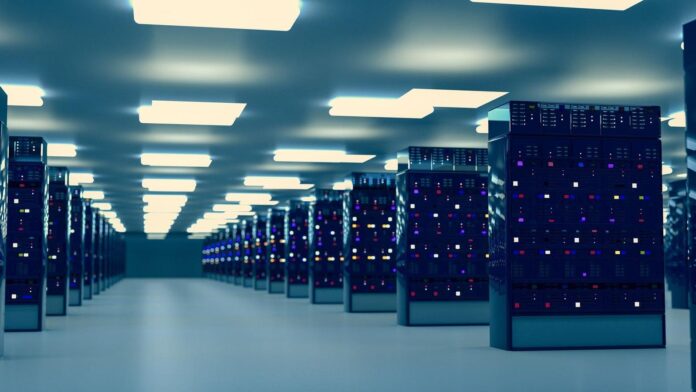Server. Server racks in server room cloud data center. Datacenter hardware cluster. Backup, hosting,
… [+]
getty
The race to build powerful AI data centers is accelerating, with tech giants vying to be key players in AI’s future. Microsoft and OpenAI, for instance, are reportedly planning a $100 billion investment in data center projects to expand their AI capabilities. This competition highlights supercomputing infrastructure as the backbone of AI development.
Elon Musk’s xAI is scaling new heights with its Colossus supercomputing center in Memphis, Tennessee. Already outfitted with 100,000 Nvidia Hopper GPUs, the facility is doubling its capacity to 200,000 GPUs. Leveraging Nvidia’s Spectrum-X Ethernet networking, it’s aiming to become a cornerstone of AI research and applications. Named after Colossus, the world’s first programmable electronic computer built in 1945, Elon Musk evokes the historic significance and transformative potential of supercomputing.
This fierce competition marks supercomputing data centers as critical infrastructure of the economy, akin to railways, highways, or the electricity grid in earlier eras of social development. Alan Turing’s foundational ideas in his 1950 article Computing Machinery and Intelligence illuminate this transformation, offering a lens to understand the societal impact of the rapidly growing demand for supercomputing.
Britain / UK: Alan Turing (1912-1954), computer scientist and cryptologist instrumental in breaking … [+]
Pictures from History/Universal Images Group via Getty Images
Data Centers: From Universal Machines to Universal Infrastructure
Turing’s concept of the “universal machine” envisioned computation as adaptable, capable of performing any task with the right programming and resources. Supercomputing datacenters now embody this idea, designed as a general-purpose platform for diverse AI applications—training language models, developing humanoid robots, and enhancing self-driving cars.




